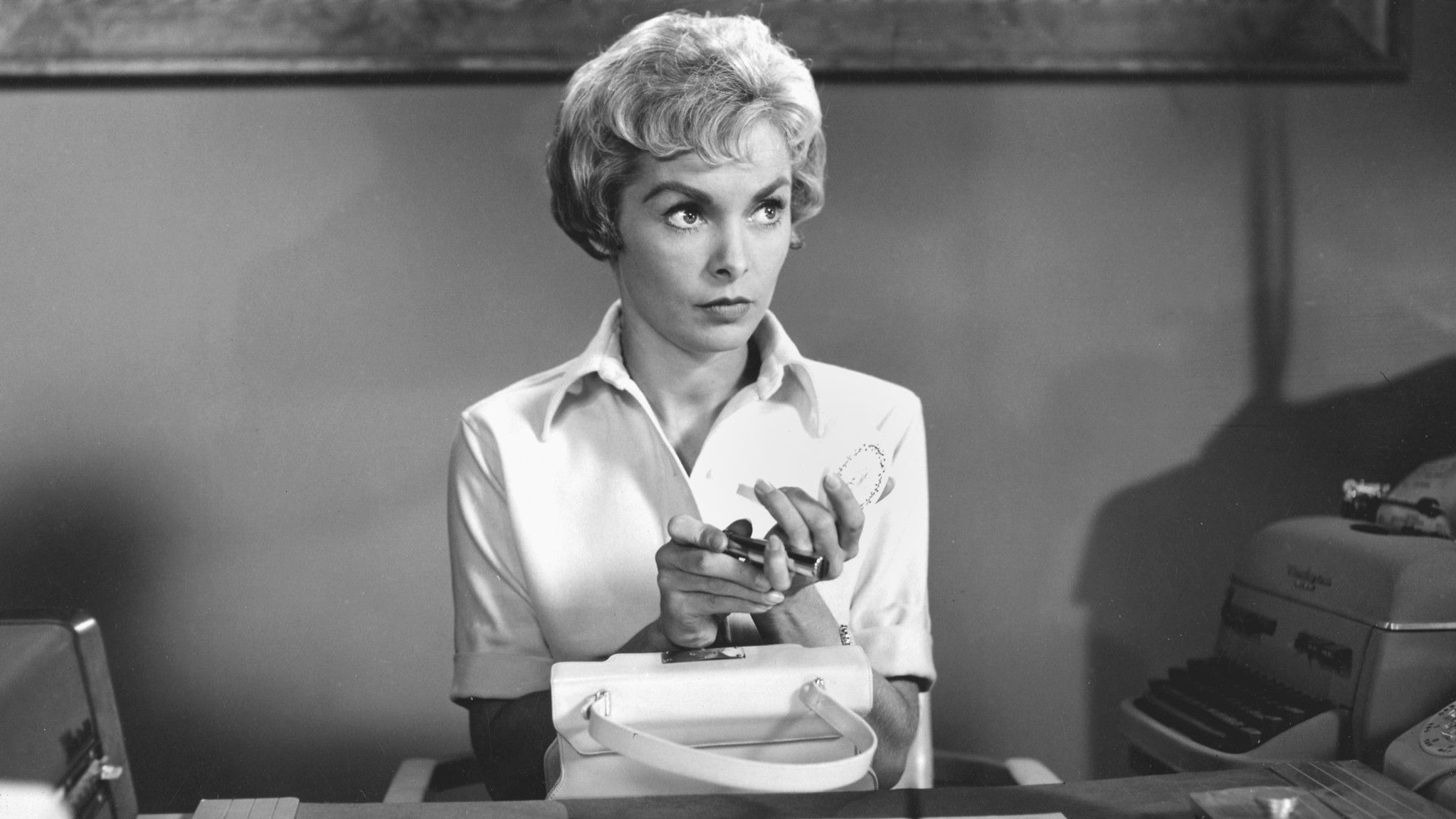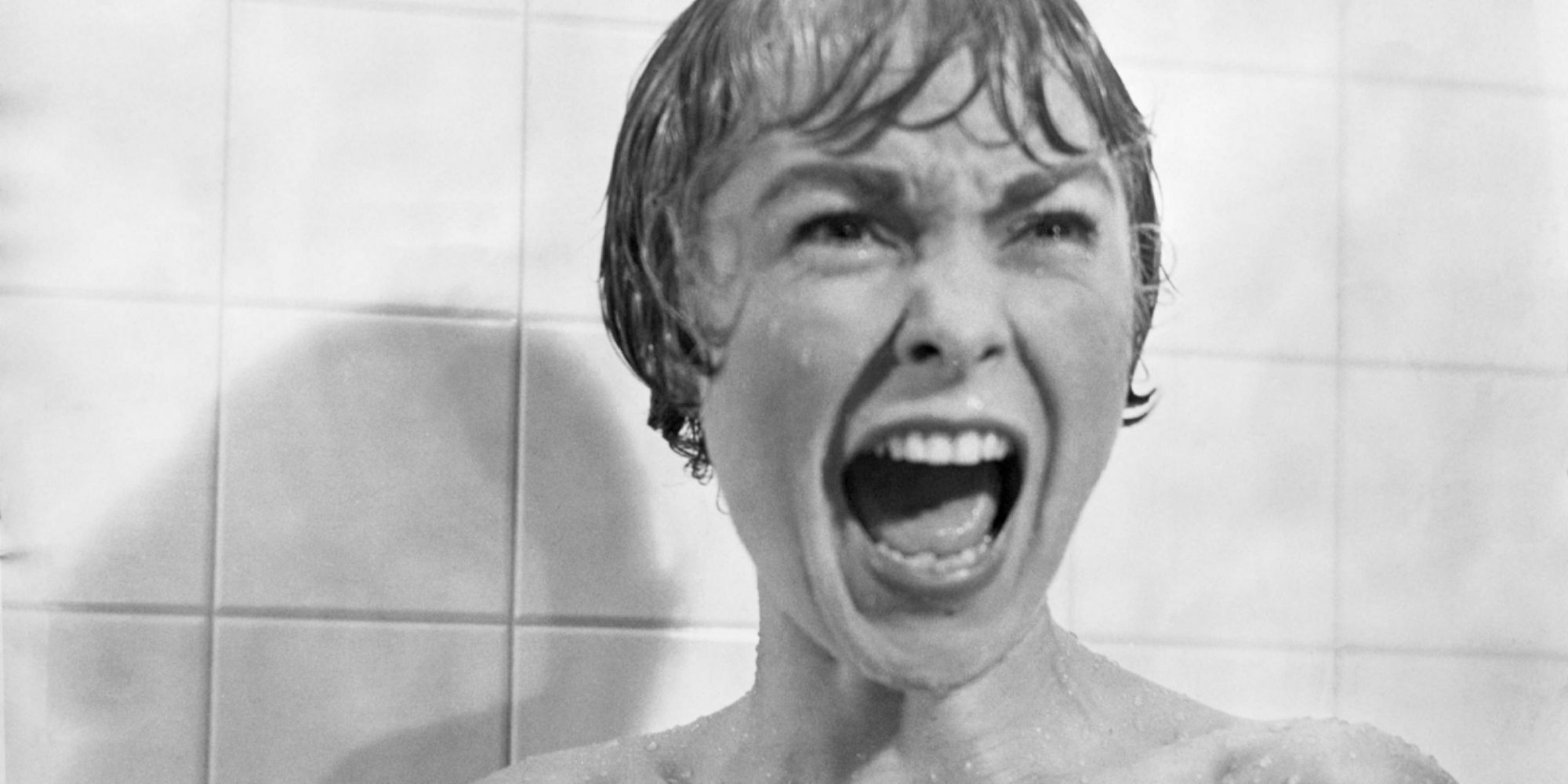[ad_1]
Alfred Hitchock’s 1960 film Psycho is widely considered one of the greatest and most suspenseful movies of all time, and for good reason. Hitchcock knew what he was doing when he was establishing those unsettling camera angles in the Bates Motel parlor (that owl!) and orchestrating a shower scene that will surely remind you to lock the bathroom door. Janet Leigh and Anthony Perkins’ performances are equal parts subdued and sophisticated and Joseph Stefano’s tight script never veers off course. And in addition to spilling some blood and startling the audience, that shower scene not even halfway through the film single-handedly reinvented storytelling. But one of the most important reasons why this film is so effective and eerie is because of how strong and self-assured its protagonist, Marion Crane (Leigh), is the entire time she is on-screen, making her premature death all the more terrifying.
A Modern Woman Ahead of Her Time
Marion is assertive and confident in a way that women — especially for the time period — were not “supposed” to be. She is in control of every aspect of her life and answers to no one. But it’s important to note that she isn’t obnoxious about it, either. Leigh plays the part of Marion in a calm, cool, and collected manner without it seeming like Marion is making a concerted effort to come across that way. If you didn’t like what Marion was selling, then keep walking, because she is not going to waste her time trying to win you over. Or better yet, if she didn’t care for you too much, she would be sure to make that subtly obvious with a smile. If one thing is certain, it is that Marion isn’t going to settle for anything less than what she thought she deserved.
The opening scene of Psycho establishes Marion’s strong personality in her conversation with Sam (John Gavin), the fellow she frequently engages with in a hotel room on her lunch break. He wants more from their romantic meet-ups than she seems to, and is more emotionally invested in their relationship than she appears to be. He dramatically recounts all the woes in his life (he’s divorced, can barely afford alimony, and is stuck paying off his father’s debts) while Marion patiently listens. She loves him dearly, and even suggests marriage, but she’s also more pragmatic and knows how things between them will probably turn out. In a role-reversal of gender stereotypes, it’s Sam who seems to crave intimacy, which is not only refreshing but also a clever way to show that Marion’s number one priority is herself. As Sam wallows in his doubts, he asks, “Marion, you want to cut this off, go out and find yourself somebody available?” to which she matter-of-factly replies, “I’m thinking of it.”
Marion’s control carries over to the real estate office. After she ends her and Sam’s rendezvous at the hotel and arrives back at work (albeit a bit late), she encounters the oh-so-sleazy Tom Cassidy (Frank Albertson), a new client for George Lowery (Vaughn Taylor) who wants to make it very clear, specifically to Marion, that he is wealthy. Marion isn’t the slightest bit impressed. Frankly, she’s annoyed that he’s taking up her time. It’s actually quite hilarious watching her simmer with annoyance. She doesn’t put on a charming persona for the wealthy client, but rather watches as his schmoozy performance dies a slow death. He tells her that he likes to “buy off” unhappiness, which he follows with, “Are you unhappy?” Marion, not taking the bait, answers, “Hmm. Not inordinately.” Her doe-eyed coworker Caroline (Patricia Hitchcock), on the other hand, cannot fathom Marion’s composure.
Things Start to Go South
Marion’s circumstances start to go south as soon as she leaves work, though you wouldn’t know it. She takes off early because of her alleged headache, but really, this was Marion being classic Marion and doing what she wants. She didn’t have a headache, but she did want to see Sam. Rather than putting the $40,000 in the safe deposit box like her boss asked, she packs a suitcase and includes the envelope stuffed with cash along with it. While she doesn’t explicitly say why she does this (perhaps she doesn’t even totally know) it’s likely that she was going to give it to Sam to help get him out of his financial jams. But Sam never pressures her to steal money or leave work to see him, those were her choices.
Our protagonist’s self-reliance continues on the road, even when a cop pulls her over for suspicious behavior (she was getting some roadside shut-eye). At this point, Marion is officially considered a thief who is on the run, but again, you wouldn’t really be able to tell. Leigh never resorts to melodrama, but instead plays the character with conviction. She largely keeps herself restrained while being questioned by the stern cop, and even though his instincts were right, she puts him in his place. “I’ve told you there’s nothing wrong, except I’m in a hurry and you’re taking my time.”
A Fateful Decision
Typically, horror protagonists make a handful of pretty lousy decisions. Ones that make you yell at your screen and lose sympathy for the very person you are expected to root for. You might ask yourself, “Why would they go in there? Why are they hanging out with this person that is obviously bad?” Marion’s trajectory is so tragic because she doesn’t fall into any of these literal or metaphorical traps. In fact, it’s just the opposite! She’s always thinking one step ahead and covering all of her bases. At the car dealership, she sheds her Arizona plates and trades in her car for a different one to limit suspicion and get that cop off her tail. Rather than being meek and timid when she arrives at the Bates Motel in the brutal storm when sees that no one is there, she aggressively honks her car horn to get her evening underway. She smartly signs the guest book as “Marie Samuels” and says her hometown is Los Angeles to cover her tracks. She agrees to have dinner with Norman (Perkins), the boyish motel owner, after he fumbles his way through getting her acquainted with the humble joint. But before she does that, she is sure to hide her cash in her newspaper. Seriously, this woman knows what she is doing.
Little did the audience — or Marion — know that her not-so-quality time with Norman in the parlor would be the last conversation she ever had. It’s clear by the look on Marion’s face as she examines Norman’s parlor that she knows he’s a bit of an odd bird (what with the excessive taxidermy bird decor), but since he hasn’t shown any sides of being harmful and actually seems very sweet, she goes through with the dinner. Their unconventional conversation about the cost of living in a “private trap” is the source of revelation for Marion. The whole embezzling scheme might not be worth it after all. “I stepped into a private trap back there, and I’d like to go back and try to pull myself out of it. Before it’s too late for me to,” she admits before cutting their dinner short. Back in the room before that fateful shower, she makes notes about her finances then quickly rips them up. She even goes as far as flushing them down the toilet to prevent tracing the evidence of the crime back to her. All of this planning and careful thinking, and yet, nothing could prepare her for what’s to come.
Psycho is a brilliantly haunting tale for many reasons, with Marion’s murder being the most memorable. How can someone so strong and capable simultaneously be so vulnerable? Marion might always be thinking three steps ahead, but not even she could predict that a shadowy figure would yank back that shower curtain and plunge a knife into her helpless body. This makes her screams more deafening and her untimely demise not only more shocking, but more disturbing, as it proves that no one is in control of their own narrative.
[ad_2]
Source link
Armessa Movie News


